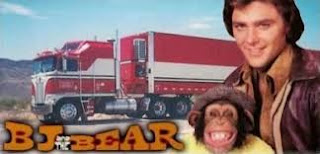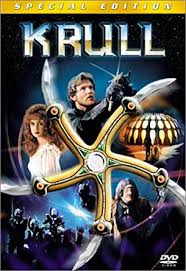"If you want a vision of masculinity imagine Dr Frankenstein being bum-raped by his own monster while shouting , 'I'm fine, everyone! I'm absolutely fine!'
Rave reviews from Marina Hyde, Stephen Fry, and Sarah Millican are nice to have, J.K.Rowling and Dawn French too, but if I was Robert Webb (and, let's face it, he probably didn't have much say on this) I'd have left the one from The Daily Mail off. If I'd seen it it would have put me off buying How Not To Be A Boy.
How Not To Be A Boy is divided into two 'Acts'. The first, split into eight chapters, is about how boys are supposed to be (sport loving, assertive, and brave) and what they're not supposed to be (tearful, gay, or virgins) and the second, six chapters, does the same for men. Who must be organised, good at directions, and confident but must not need therapy and must not take themselves too seriously.
There's been a lot of understandably earnest writing in recent years about how male toxic behaviour isn't just dangerous for women but for other men and, ultimately, for the body that is host to all that toxicity. Much of it, from women and men, has been excellent. My hope for, and expectations of, Webb's book was that it would, indeed, be compellingly excellent but also that it would be laugh out loud funny and even, as suggested in the blurb, surprisingly raw and emotional in places.
A big ask but one I felt he'd be up to. It was two pages in before I first laughed (as Webb imagines impressing a girl with the Van Gogh prints and politically correct posters in the bedroom she'll almost certainly never enter) and there were several more chuckles before, about ten pages in, Webb recounts sitting in his own garden late at night drinking two more bottles of red wine alone long after his wife, pregnant with their first child, had gone to bed.
A book that follows him through a childhood that, like so many, was both happy and sad. Happy times include singing along with his mum to Berni Flint on Opportunity Knocks and sliding down the stairs on the family's first Continental Quilt. Yet sadness hung in the air following the death of an elder sibling before Webb was even born. The shadow of that death haunts the young Webb's Lincolnshire home and lurks in the marriage of his parents like a silent ghost
This is life. This is everyone's life. A mix of beautiful, mundane, comforting, terrifying, and tragic events. Processing it and coming to terms with it is what makes us human but what if we can't? What if we've been conditioned not to? What if we've been told to 'man up' instead of dwelling on things that have happened to us?
Webb smartly underlines how by telling boys to stop expressing their feelings we're telling them to stop even feeling those feelings, to be ashamed of them even. Don't feel sadness, don't feel grief, don't feel fear, don't feel anxiety. That's not what boys should do. Certainly not men. Instead subsume all those feelings into one big all-encompassing feeling. That of anger.
But that anger has to come out somewhere and, of course, it comes out in drunken pub fights, in shouting at one's children, and in verbal, emotional, and physical violence of one's partner. Webb's four years younger than me so many of his references hit the bullseye and all of them seem accurate. Terry Wogan on Radio 2, Fuzzy-Felt, Lester Piggott's tax returns, BJ and the Bear, WH Smith 'Back to Skool' signs, shirts vs skins in PE at school, "dossing about", and the boy's playground chants of "Who wants to play (insert various game)? No girls allowed".
Webb's got a great turn of phrase. When his mum, Pat, meets his stepdad, Derek, it's "not so much a courtship as an Anschluss", when he slow dances with a girl to Do They Know It's Christmas (!) he notes that "even if you ignore the romantically underperforming topic of starving children" it still moves quickly into an "anthemic knees-up" quite unsuitable to an erection section, and, while imagining removing a splinter from a Dr Who assistant's vagina and having his first orgasm describes his younger self as the "Doogie Howser MD of space cunnilingus". He even drops in a self-aware reference to Super Hans, his character Jez's pal, and idol, in Peep Show.
It's a wonderful evocation of growing up, discovering your sexuality, discovering your political affiliations, and coming to terms with the body you've been born in and the thoughts and feelings you can't prevent coming. Of how, in Webb's words, girls and women pick up the bills when boys and men turn their fear and grief into anger. By the time I'd finished the book I'd cried many times. Tears both of joy and of sadness.
So thanks mum, not just for giving me a book full of actually quite filthy jokes about wanking, fingering, and licking out Dr Who's assistant but also for giving me a book about how growing up isn't something that stops when we reach puberty or leave home or get married, about what it is to be a good person in a world that doesn't always want you to be, and what it is to be able to both love and to be loved in return.













No comments:
Post a Comment